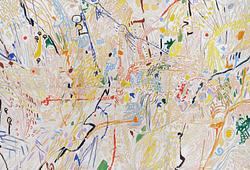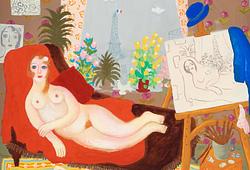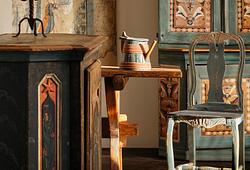Bruno Liljefors
Goshawk and grouse
Signed Bruno Liljefors and dated 85. Canvas 30 x 41 cm.
Muut tiedot
The bird of prey in rapid and decisive attack was one of the scenes that fascinated Bruno Liljefors from an early age. The dramatic events in nature grabbed him, for reasons that were ultimately very personal. A worship of the explosive power, but also the realization of the vulnerability in a world full of dangers, are early elements in his psychology. Outdoor pursuits sharpened his powers of observation, which were combined with the urge to be constantly 'en garde'. The experience of bullying in early boyhood never left him. He must have studied the hunting habits of the sparrowhawk at close quarters. With an intense gaze, the bird of prey has just completed the first phase of the attack and is holding the pheasant's head with its beak open in a cry of death. The plumage is drawn with unerring precision. In later paintings, the sharpness of detail would give way to a more summary way of depicting the movements of the encounter between prey and predator. The picture is also a piece of virtuoso light painting in which Liljefors records his impressions of the new ideas he had picked up remarkably quickly on the continent. Notice the contrast between the beautiful, lush shrubbery and the ongoing death struggle. Here, as in other paintings, the painter shows a totally disillusioned view of the struggle for existence, in line with his Darwinian beliefs.




























